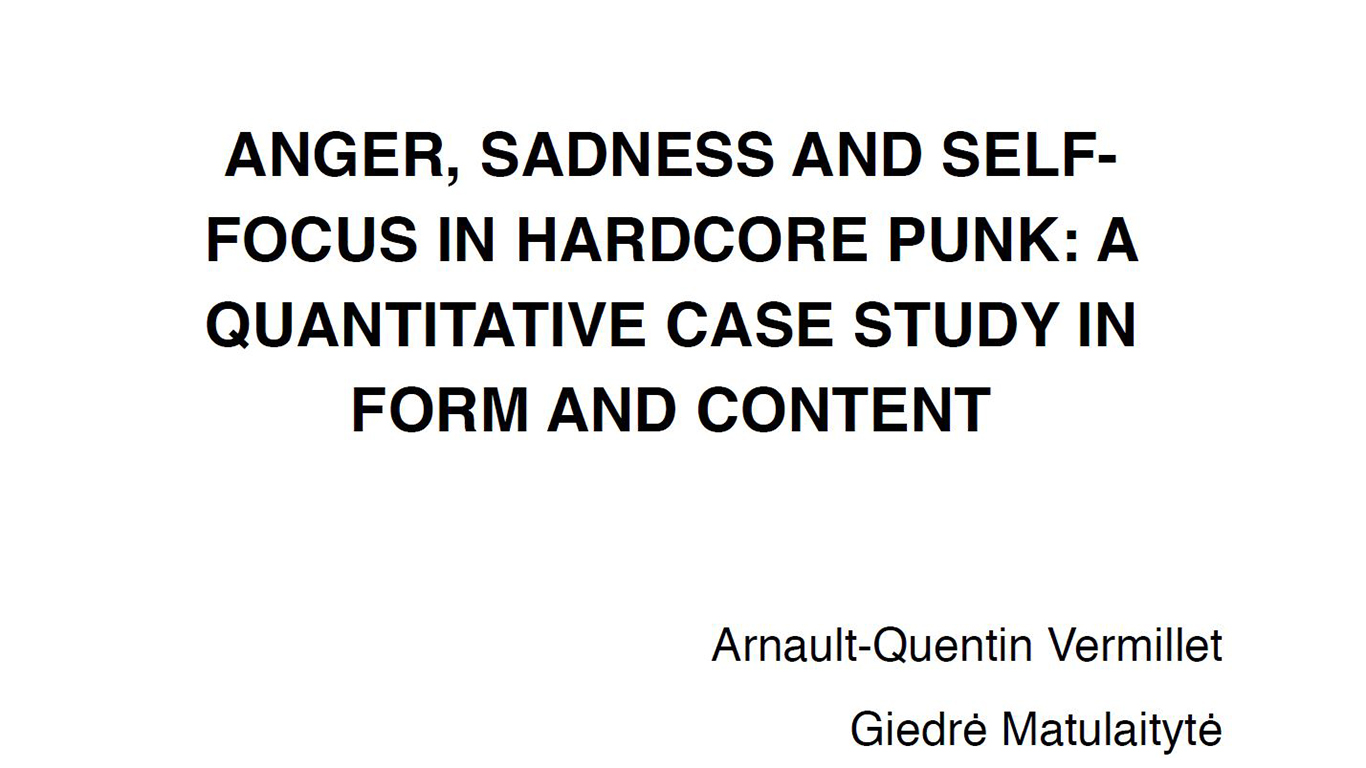
2018: The Hardcore Thesis
I say, the best study programs are those where you get to investigate hardcore punk in your thesis. From 2016 to 2018, I was lucky to attend the Cognitive Semiotics MA program at Aarhus University, Denmark. An extremely interesting interdisciplinary mix of cognitive sciences, linguistics, aesthetics and all sorts of semantical schools with plenty of selective classes, it provided some cool methods to dive into subjects of my choice, whether that would be socio-cognitive nuances of moshing or intertextual relations between La Dispute and their favorite Russian author Nabokov.
And then the thesis came. A project I will probably always recall as one of the most challenging experiences of my entire existence. No kidding.
At first, I got this idea of comparing old school hardcore, post-hardcore and emotional hardcore (emo) in terms of sadness and anger expressed in the lyrics and the music. Which one was truly the angriest? And which one was the saddest, scientifically speaking?
To figure that out on a big scale, I needed a good data analyst.
That’s where Arnault-Quentin Vermillet, a groupmate at the time, a great friend, a music enthusiast, and a data scientist who is now a lecturer Aarhus Uni, came into picture. I told him about my idea, and he was fascinated. We shook hands and it started.
Read nearly all imaginable books and articles about the 3 styles. Scanned them Mr. Robot style, along with literature about big-data lexicon analysis and linguistic indicators of psychological states.
In the meantime, we made an 852-track sample out of 68 records. 21 hardcore, from 1980 Dead Kennedys to 1989 Gorilla Biscuits, 23 post-hardcore from 1983 Minutemen to 2017 Idles, and 24 emo, from 1985 Rites of Spring to 2017 Sorority Noise. A nice representative bunch.
Supervised by Associative Professor Kristian Tylén, we started digging into the tracks, taking the acoustic data from Spotify for Developers. Sourcing the lyrics wasn’t that easy. While we found a way to export the acoustic data into the R*, we didn’t manage to do that with the Genius database . Which meant manually. Entering. All. 852 lyrics. Doing that from wherever I happened to be, felt like I was starting to merge with the software. And the R became a part of me. Forever.
In the lyrics, Arnault, R and I counted sad and angry words as well as the 1st person pronouns (I, me, my, mine) which, according to psychological research, may imply depressive states in language. All of that was done with the help of our dear friend at the time NRC Word-Emotion Association Lexicon. Whereas in music, Arnault was focusing on energy (high energy vs. low energy) and valence (musical “positiveness”).
Now I can tell from experience that nothing compares to seeing some of your favorite emotionally explosive songs taking the shape of a stone-cold data set. Highly recommended.
The results came out rather surprising. To put it in scientific terms, they actually blew my mind. Turns out that things may not always be as they appear at first (or hundredth) listen. Especially when it has to do with hardcore and emo.
Days, weeks and then months were passing by, and it seemed to never end. And then we finally had it, our hardcore thesis, submitting the 153-page little monster a few minutes before the last possible deadline. Exhausted yet kind of really proud.
Pictures: title page snippet; data processing while having god knows how many glasses of cold brew that day.
Copyright © decomposer 2019
